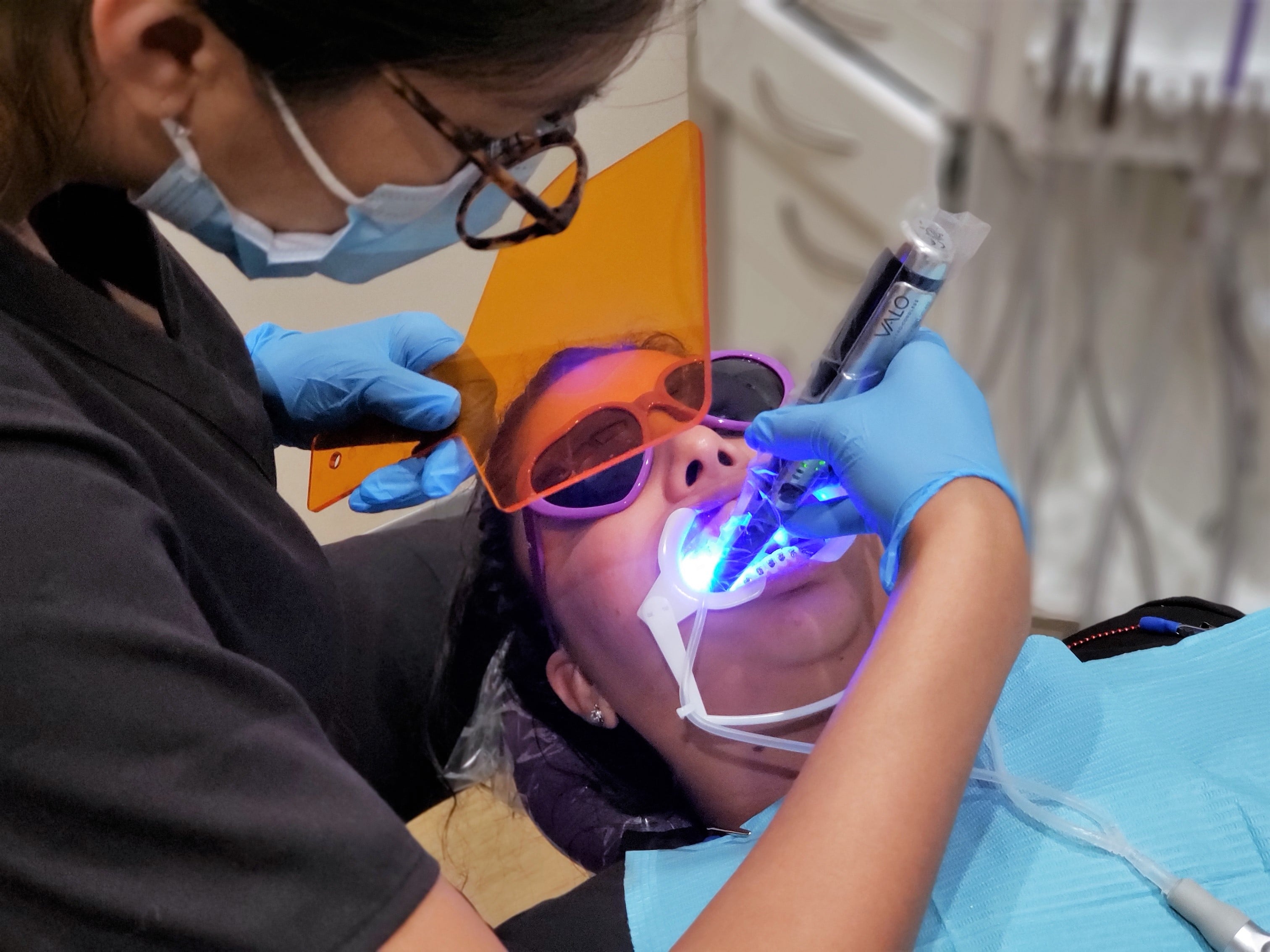In scaling, using a hand-held dental scaler, your Miami children dentist will manually scrape the plaque from your teeth below and above your gum line. Along with a water spray to remove tartar, they might also employ an ultrasonic tool with a vibrating metal tip. Root planning, which is more like rubbing, is used to smooth down rough areas on the roots of your teeth so that bacteria will find it more challenging to adhere to them in the future.

To eliminate bacteria that are difficult to reach, a dental deep cleaning Miami specialist may occasionally put an antibiotic gel on the teeth during the cleaning. The dentist may recommend oral antibiotics or a specialized mouthwash in other cases. For this procedure, which takes two appointments instead of one, we can treat half of your mouth at each appointment.
How to know if you require deep dental cleaning?
Not every patient needs a thorough cleansing, and dentists perform deep teeth cleaning Miami to limit additional harm and prevent tooth loss. Extensive cleaning may be necessary for patients with gingivitis, the early stage of gum disease, or a more severe instance of the condition.
It can be quite difficult to determine whether you require a deep cleaning because gum disease doesn't usually produce pain or exhibit apparent symptoms. However, the following are some signs to watch out for:
- Persistently unpleasant flavor or odor
- Loose or separating permanent teeth
- Easily bleeding gums
- Swelling, redness, or tenderness of the gums
- Your teeth's gums have separated.
At your routine check-up, your dentist can identify the issue by measuring gum pocket depths using a probe. To check bone loss, they could also take x-rays. You require extensive cleaning to eliminate the infection and encourage healing if the pockets are deeper than what regular cleaning can treat. Depending on the problem, you might need to scale and plan in a few places.

Do deep teeth cleaning cause any pain?
Scaling and root planing can cause pain and discomfort. So, your dentist will use local anesthesia to numb your gums during cleaning. In the days following the surgery, your gums might be sensitive and bleed a little when you clean your teeth. In addition to desensitizing toothpaste, your dentist may suggest a mouthwash or painkiller.
What happens after the deep teeth cleaning procedure?
You'll receive home maintenance guidelines following a deep cleaning tailored to your needs. They'll set up an appointment after 4-6 weeks to ensure you are healing correctly. We might also recommend more frequent routine cleanings for a predetermined time. The pocketing will continue to be measured to ensure your gums are getting better.
Most patients have excellent responses to deep cleaning, and their gum health quickly improves with proper aftercare. Your gums will heal, and your pockets will gradually get smaller.
Conclusion
We hope the above information helps you understand some valuable and beneficial facts regarding deep teeth cleaning. The above article explains some exciting and informative things about deep teeth cleaning. For a deeper dive into deep dental cleaning, please visit ivanovortho.com.
Article Source : https://www.spiceupblogging.com/what-does-deep-teeth-cleaning-procedure-entail/
Comments